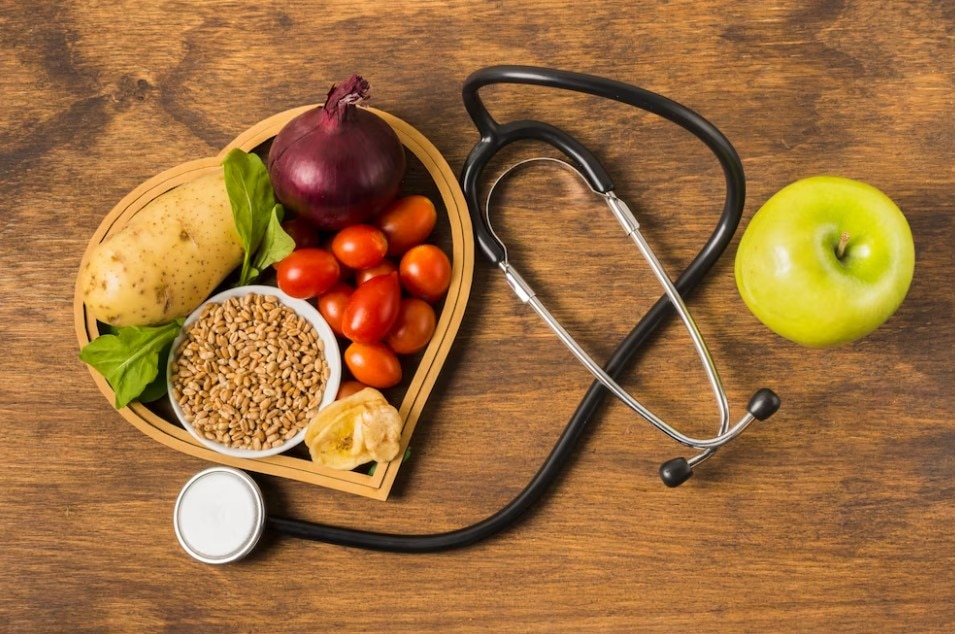Diet is one of the most vital pillars for recovery post heart attack. Confused what to eat and avoid? Here is a list of things to add in everyday meals to boost heart health.
The incidence of heart attacks is increasing at a tremendous rate, and an unhealthy lifestyle and bad eating habits are the major reasons behind it. Our diet plays an important role in both causing heart attacks and healing from them. Once a person suffers from a heart attack, it becomes even more important to eat right for faster recovery and to reduce the reoccurrence of a heart attack. Controllable risk factors connected with cardiac issues, such as diabetes, high blood pressure, and high cholesterol levels, can also be affected by the type and amount of food consumed.
Diet influences weight, blood pressure, cholesterol levels, and blood sugar levels, all of which are known risk factors for cardiovascular problems and death. If anyone has had a heart attack or has been diagnosed with cardiovascular disease, changes in diet can help prevent disease development and prevent recurrent heart attacks.
People with cardiovascular diseases have several dietary options for improving their cardiovascular health. It is recommended that vegetables and fruits form the majority of the meal, with smaller portions of whole grains and healthy protein sources accompanying them.
HEART ATTACK: WHAT TO EAT AND AVOID
What to eat after heart attack?
- Heart-Healthy Fats: Monounsaturated fats and omega-3 fatty acids are some fats that are good for the heart. Consume monounsaturated fat-rich foods such as avocados, olive oil, and almonds. These fats can help reduce bad cholesterol while boosting good cholesterol, promoting cardiovascular health. Omega-3 fatty acids are present in fish such as salmon, mackerel, and sardines. These fats can help lower blood pressure and inflammation, both of which are beneficial to heart health.
- Fibre-rich foods: whole grains, fruits, and vegetables are rich in fiber. Whole grains like brown rice and quinoa help regulate blood sugar levels and lower cholesterol in the body. A variety of fruits and vegetables are packed with vitamins, minerals, and antioxidants that support heart health. Vegetables like broccoli, carrots, and leafy vegetables are good for heart health.
- Dairy Products: Dairy products, which are high in calcium, protein, and vitamins, can help prevent cardiovascular diseases. Consuming low-fat or fat-free dairy products may be healthier than full-fat alternatives. This can include low-fat or fat-free yogurt, cheese, and milk.
- Proteins: Choose skinless poultry like chicken and turkey over red meats. These lean protein sources include less saturated fat. For plant-based proteins, include beans, lentils, tofu, and legumes in your diet. They are low in saturated fat and might be a good substitute for meat.
What not eat after heart attack?
- Excessive Salt: In small quantities, salt is beneficial to the body, but too much salt can cause an increase in blood pressure. Reduce your use of table salt and instead enhance the food using herbs and spices.
- Alcohol: Drinking a lot of alcohol raises your chances of getting high blood pressure, high cholesterol, heart disease, stroke, and other health problems. It is recommended to limit alcohol intake or avoid it altogether.
- Ultra-processed food: food that has been ultra-processed is far from its natural state. These foods are usually high in sugar and sodium and frequently lack nutrition. Eating ultra-processed foods may increase your risk of overall cardiovascular disease. Soda and energy drinks, ice cream and candy bars, and packed snacks and sweets are all part of ultra-processed foods.
- Fried foods: Fried foods, such as French fries and fried chicken, are high in harmful fats and should be avoided. Stay away from processed snacks, fast meals, and commercially baked items, which are high in trans fats and unhealthy saturated fats.
Eating the right food after a heart attack is crucial for a speedy recovery and long-term cardiovascular health. A heart-healthy diet rich in fruits, vegetables, whole grains, and protein-rich foods may be beneficial after a heart attack. If you have been diagnosed with cardiovascular disease, changes to your diet can help you stay healthy and prevent future heart attacks. Eating a diet rich in nutrients is an important component of a heart-healthy lifestyle that can help avoid another heart attack, enhance quality of life, and have a beneficial impact on overall health.
Published Date: October 3, 2023 2:44 PM IST
–>
–>
